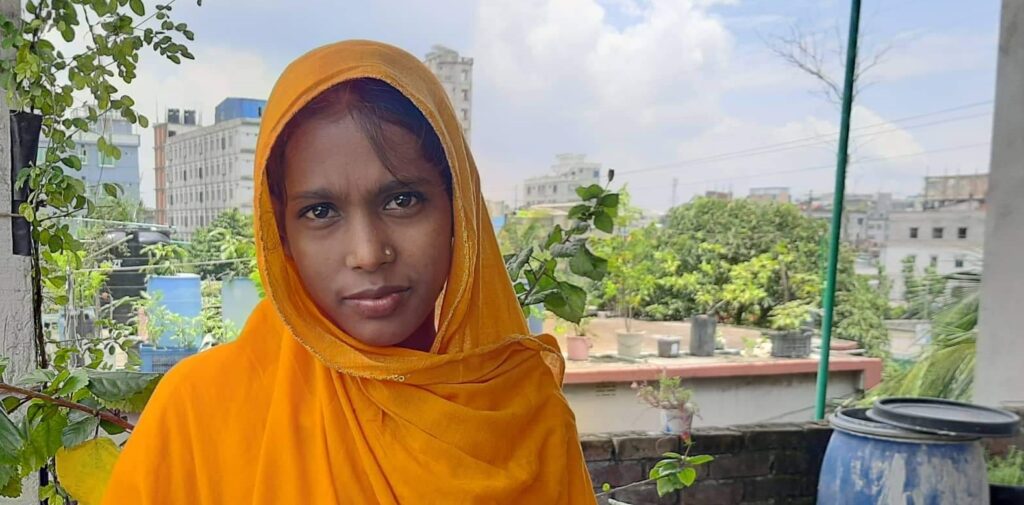Potential Implications for the RMG Sector of Bangladesh
The EU’s HREDD Regulations

Over the next two months the Garment Worker Diaries will be sharing four blog posts guest-written by our long-time partner in the field in Bangladesh, the South Asian Network on Economic Modeling (SANEM). While the first two blogs form a pair, covering the European Union’s Human Rights and Environmental Due Diligence (HREDD) directives, all four blogs are motivated by worker well-being at their core.
This blog, the 1st in the HREDD series, introduces the directives and focuses on the potential implications for the ready-made garment sector in Bangladesh. The 2nd blog in the series will focus on how the RMG sector in Bangladesh can best comply with HREDD directives. We are happy to also be publishing all four of these blogs in Bangla. To read this blog in Bangla, please navigate here.
Note: Banner photo courtesy of a garment worker in Bangladesh.
***
The EU market accounts for more than 50% of Bangladesh’s total Ready-Made Garments (RMG) export market. While on a country by country basis the significance of RMG markets such as the USA, the UK and Canada is undeniable, the EU stands out as an overarching region. Tariff-free access to the region’s import markets under the Everything but Arms (EBA) initiative has been a crucial factor in expanding the RMG exports to the EU.
The latest import data released by the European Statistical Office (Eurostat) and produced by the BGMEA indicate that Bangladesh’s garment export to the EU increased by 44.6% to $11.31 billion during the first half (H1) of 2022. In the same period last year, Bangladeshi manufacturers shipped apparel items worth $7.82 billion to the EU countries. As a result, Bangladesh is now only second to China, in terms of RMG exports to the EU.
Given the significance of the EU market, it is necessary for Bangladeshi RMG producers to comply with the EU’s Human Rights and Environmental Due Diligence (HREDD) directives. Human Rights and Environmental Due Diligence (HREDD) is a proposal adopted by the EU on February 23, 2022, intended for companies to “efficiently identify, prevent, mitigate and account for the negative impacts of their activities or those of their subsidiaries, subcontractors, and suppliers,” as defined by the European Coalition for Corporate Justice (ECCJ). HREDD mandates a procedure to be used by businesses to effectively identify, prevent, mitigate, and account for the negative effects of their operations as well as those of their affiliates and suppliers. This implies that a business must comprehend the potential social and environmental repercussions along its value chain (seeing beyond its activities), develop mitigation and preventative plans, monitor performance, and share information about those efforts. It also means that a business needs to have procedures in place to offer or make possible a remedy when an adverse effect arises.
There are a few serious concerns regarding the practice of human rights and management of environmental impact in the RMG sector of Bangladesh. A range of issues including low wages, long working hours, hazardous working environments, occupational safety, and lack of access to quality health services and education adversely impact the overall well-being of the workers and their families. The minimum wage set for the RMG sector is the lowest among the top RMG-producing countries. While there have been some improvements, occupational health and safety remain one of the topmost concerns for the workers of the sector. Environmental sustainability is another crucial area where the industry needs to focus. As a major supplier of RMG products to the EU, Bangladesh automatically falls under the purview of the HREDD regulations. The EU brands or enterprises that source their products from Bangladeshi companies will now by law be required to monitor the human rights and environmental situation in the RMG sector of Bangladesh and propose or implement mitigation strategies accordingly. Failing to comply with the HREDD regulations may lead to the termination of contracts with the RMG producers. The implications of the HREDD regulations for Bangladesh can be summarized in four key points:
Firstly, as HREDD regulations mandate, western brands sourcing RMG products from Bangladesh will implement a more robust mechanism for monitoring human rights violations and environmental impacts across the supply network. In such a case, Bangladeshi manufacturers will be required to standardize industry practices accordingly.
Secondly, the legal framework of the HREDD regulations has widespread implications, including losing access to the EU market. As Bangladesh’s RMG export is highly concentrated in the EU, losing market access would result in an enormous loss in revenue and may leave a deep long-lasting impact on the industry’s growth.
Thirdly, catering to the consumer base in the EU region will require the local manufacturers to ensure transparency every step of the way. This may require deeper collaboration with the relevant administrative bodies within the EU structure as well as other international organizations working on human rights and a sustainable environment.
Fourthly, the issue of environment and climate change is central to HREDD regulations. This has the scope to create moral pressure on policymakers to ensure green manufacturing.
In light of this discussion, it can be concluded that HREDD regulations will usher in a new and more robust mechanism of human rights and environmental compliance. In order to ensure the sustainable growth of the RMG sector and maintain access to the EU market, policymakers and stakeholders of the RMG sector in Bangladesh need to work together to improve the human rights situation and environmental conditions accordingly.
Dr Selim Raihan, Professor, Department of Economics, University of Dhaka and Executive Director, SANEM. Email: selim.raihan@gmail.com
Omar Raad Chowdhury, Research Associate, SANEM. Email: omar.raad.chowdhury@gmail.com